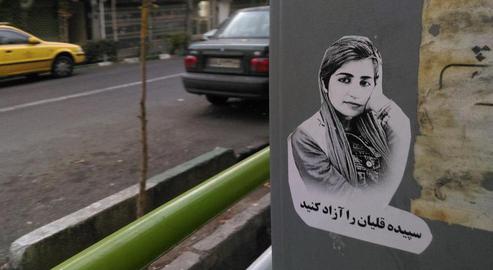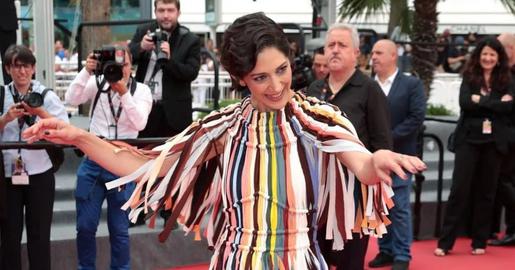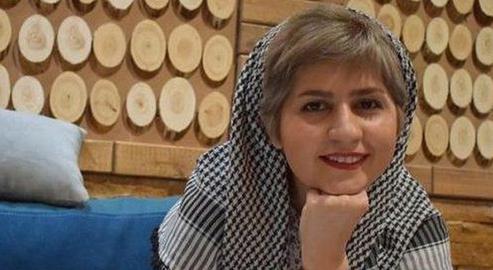Sepideh Gholian is a 25-year-old civil rights activist and journalist who was arrested during the labor protests of Haft Tappeh workers and sentenced to 18 years in prison. Her book, Tilapia Sucks the Blood of Hur al-Azim, tells the story of her detention at the Dezful Intelligence Detention Center and Sepidar Women's Prison in Ahvaz.
In these 19 stories, Gholian paints a meticulous picture of her horrific experience. On one hand, we directly encounter the face of oppression. On the other, we engage with the fates of others whose names, lives and imprisonment might otherwise be doomed to be forgotten and denied.
IranWire has previously published Gholian’s book in its original Persian and is now serialising the collection in English, while its author has been returned to Iran’s notorious Evin Prison. The stories are translated by Zahra Moravvej.
The first time I saw her:
I go to see the head of the prison, wanting to ask her if we can have fish for Iranian new year. She is beating a girl in a white chador. I’m stunned. She stops beating her and asks me, "What do you want?"
I am reluctant to reply. I want to stay there to find out what is happening. But I quickly: reply, “Salaam, we want to have fish for new year. Can I ask my family to bring one to me, please?"
She just wants to get rid of me and beat the girl again. ”Sepideh! What am I supposed to do with you? Ok. Tell them to bring one for you when they come to visit.”
The second time I saw her:
The sewage pipe has overflowed and I am trying to wash the dishes away from the deluge. If only, I’m thinking to myself, there was someone I could hand the clean dishes to.
Then I hear someone calling me: “Hey, blue-haired girl, let me help you.”
It’s the same girl that was being beaten. I wonder what she did.
She asks, “What’s your name?
“Sepideh, and you?”
“Khadijeh. Are you the journalist that was on TV?”
I laughed and ask, “Why are you here?”
“Murder. I killed my stepmother. I killed her with a gun. It’s been seven years that I have been here, you know, since I was 13. There’s no prison for juveniles here.”
The third time I saw her:
I am running toward the ward with my fish.
“Guys. Guys. I’ve brought fish.”
I lay the fish out on the stone bench in front of the ward. Suddenly I see one of the prisoners, Zeinab Nasirian, is dragging Khadijeh along by her hair and forcing her into the quarantine room. The guards have enlisted prisoners with huge, toughened bodies like hers to suppress the other prisoners.
I get into the middle of the fight. I want to know what has happened, but the tussle escalates. The duty officer uses a finger to indicate permission for the fight to go ahead. She allows the prisoners in the third and fourth ward to get involved. The fight starts anew. Khadijeh is one of the prisoners from the fourth ward and the others keep punching and kicking her.
I catch just a few vague sentences. Zahra, from the third ward, says, “I saw it with my own eyes. Khadijeh hides under the blanket and masturbates.”
Saham adds, “Some days ago she wrote a romantic poem with a Qur’anic pen. Mrs. Mirza beat her to death but doesn’t learn. She’s pathetic.”
“Yes,” another chimes in, “she wrote a love letter to Baran. She has to be killed!”
Maryam pushes Khadijeh roughly. She loses her balance and bumps into the bowl containing the fish. The bowl falls to the ground and breaks. Somayeh takes the fish in her hand and runs to salvage it, but there isn’t any water.
Khadijeh raises her head and says to me, “Please forgive me.”
The last time I saw her:
I feel really bad and have spent the whole day in my bunk bed. I feel there’s someone down below. It’s Khadijeh; she has brought me a hot chocolate, made from chocolates she has melted.
I see her tears on my hand.
“I wanted to be a famous actress. I want to dye my hair like yours, you know, in different colors. I’ve been here seven years, but I’m very young, you know? My stepmother used to hit me a lot. I only wanted to cut her hand but killed her by mistake. This is my penance. Now everyone will think that I have given you a love letter. They will smash me again. I love you, Sepideh.”
visit the accountability section
In this section of Iran Wire, you can contact the officials and launch your campaign for various problems




















comments